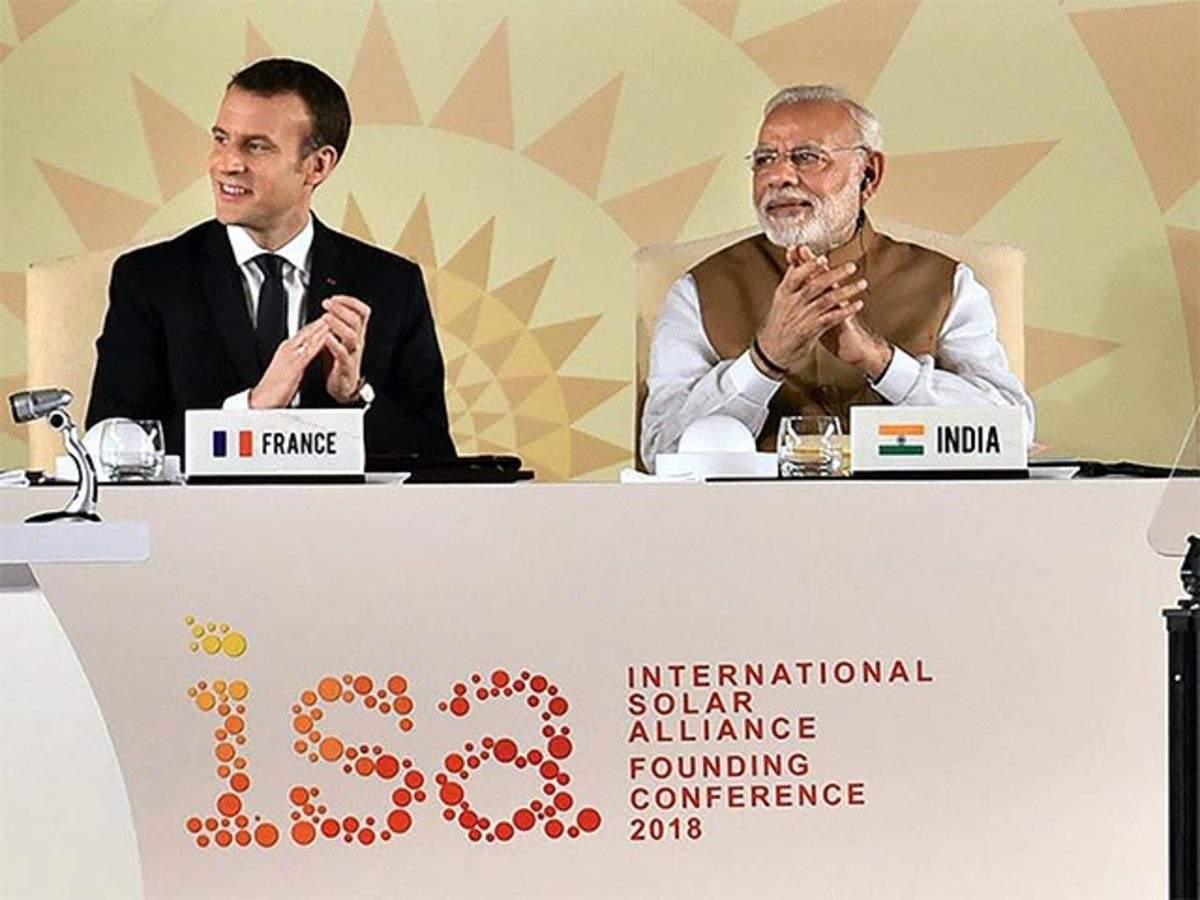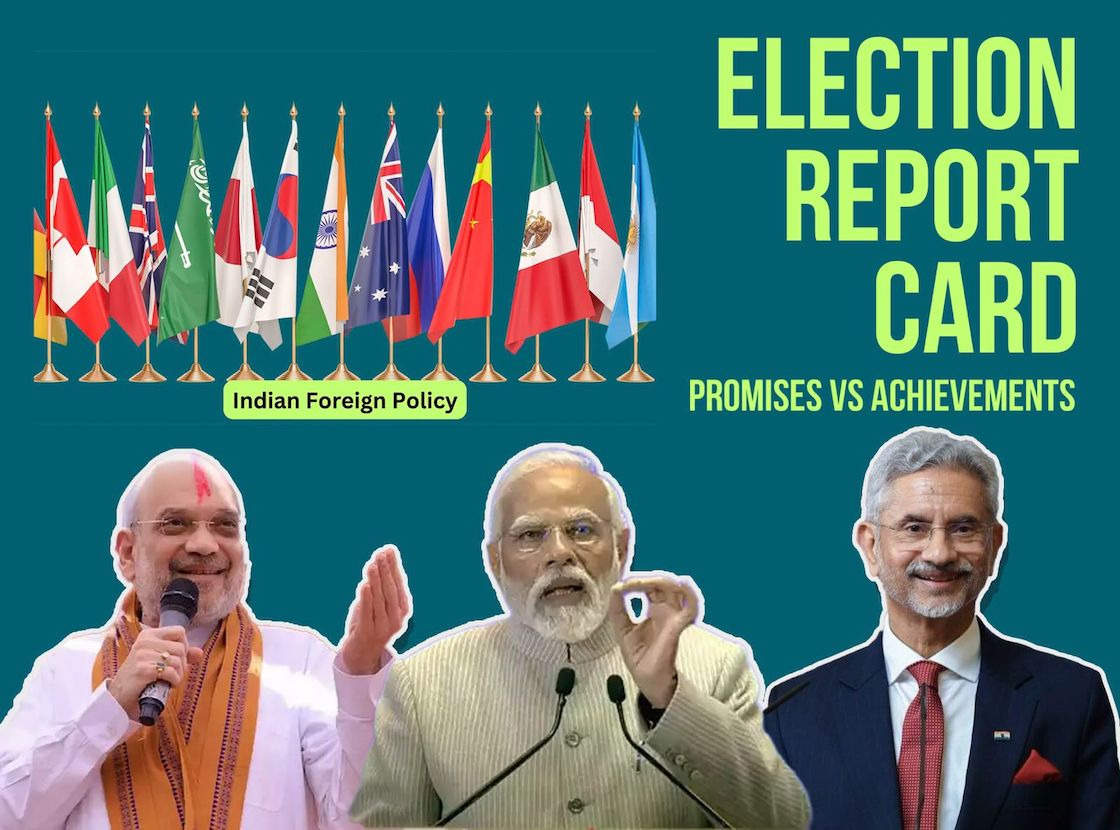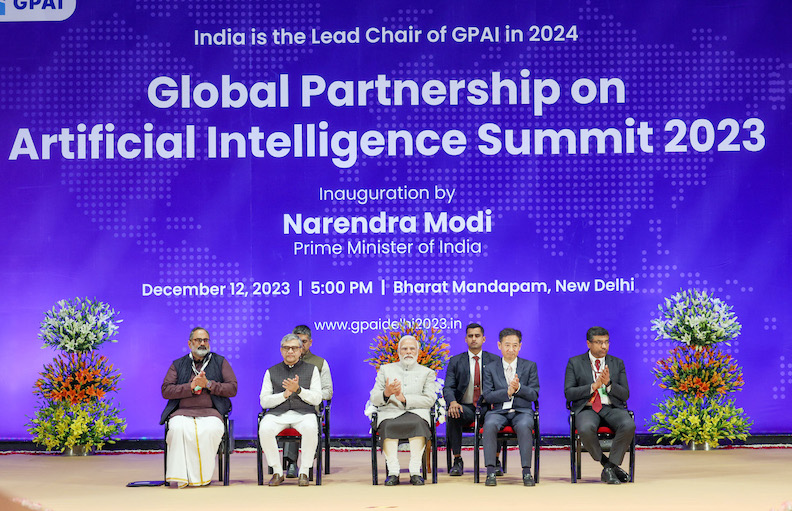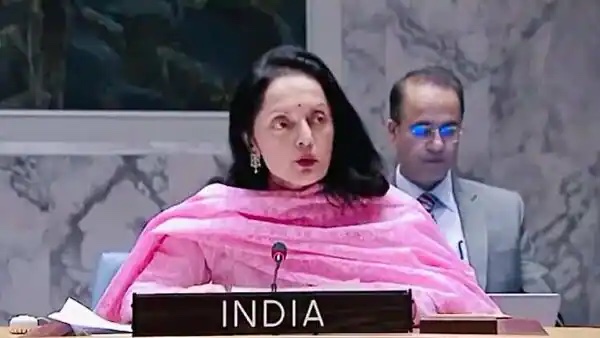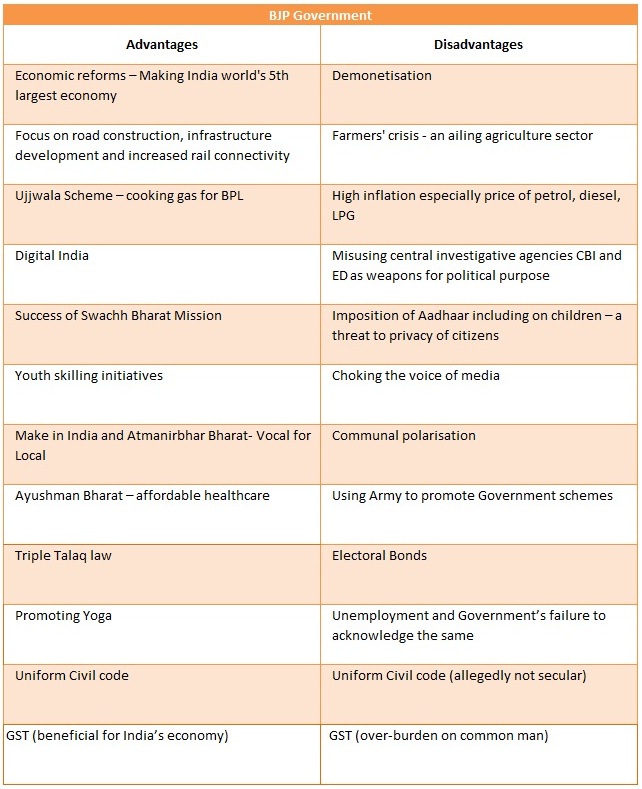Election is a very important tool in democracy. It is through election that citizens of a nation choose their representatives and select their leaders. Political leaders represent different political parties which work for various goals.
In the general election held in 2014, the BJP-led NDA secured 282 seats and formed the government, making Narendra Modi the Prime Minister of India, while in the 2019 elections the number of seats went up to 303. The much-awaited Lok Sabha Elections 2024 will commence from 19th April, for which Prime Minister Narendra Modi has set a target of 370 seats for the ruling BJP and 400 seats for the NDA.
With the Lok Sabha Elections 2024 a few days away, how to decide which political party you should cast your vote for? How to know how much work the party in power has done as against the tall claims that were made right before the previous elections?
The CSR Journal, which is known for its unbiased and fearless journalism delves into promises made versus task completed by the Bharatiya Janata Party (BJP), which is incumbent at the Centre under the leadership of Prime Minister Narendra Modi.
Following are certain promises made under the BJP’s manifesto ahead of the Lok Sabha Elections 2019. How much of the promises have been achieved in the past 5 years? Were the decisions made by the government beneficial for its people? Are citizens happy with what the government has to offer? The CSR Journal takes a look.
BJP Manifesto – Lok Sabha 2019
Promises made by the Narendra Modi Government for: Foreign Policy
1. Vasudhaiva Kutumbakam
2. Global Coordination on Knowledge and technology
3. Continuous Dialogue with Indians Living Abroad
4. Combating Terrorism through Global Forums
5. Deeper Multilateral Cooperation
6. Permanent Membership of the United Nations Security Council
7. Strengthening the Diplomatic Cadre and Outreach
‘Vasudhaiva Kutumbakam’
Vasudhaiva Kutumbakam is a Sanskrit phrase that means “The World is One Family.” This ancient Indian philosophy promotes the idea of shared humanity and peaceful coexistence among all peoples and nations. It emphasizes values like compassion, cooperation, and interdependence on a global scale. In recent decades, Vasudhaiva Kutumbakam has become an important guiding principle shaping India’s foreign policy outlook and approach to international relations.
India has actively worked to promote the spirit of Vasudhaiva Kutumbakam through initiatives like the International Solar Alliance co-founded with France, and forums like the Indian Ocean Rim Association (IORA) and Bay of Bengal Initiative for Multi-Sectoral Technical and Economic Cooperation (BIMSTEC). It has advocated for peaceful dialogue and diplomatic solutions, exemplified by its support for the Iran nuclear deal and role in the Afghanistan peace process. India has also positioned itself as a voice for developing nations through platforms like the BRICS and its calls for UN reforms.
Furthermore, India has leveraged the philosophy to broaden economic and cultural cooperation through free trade agreements with countries like Mauritius and South Korea, and ambitious connectivity initiatives like the Kaladan Multi-Modal Transit Transport Project with Myanmar. The economic initiatives like the International Solar Alliance position India as a catalyst for collective action on sustainable development and climate change impacting the entire global family.
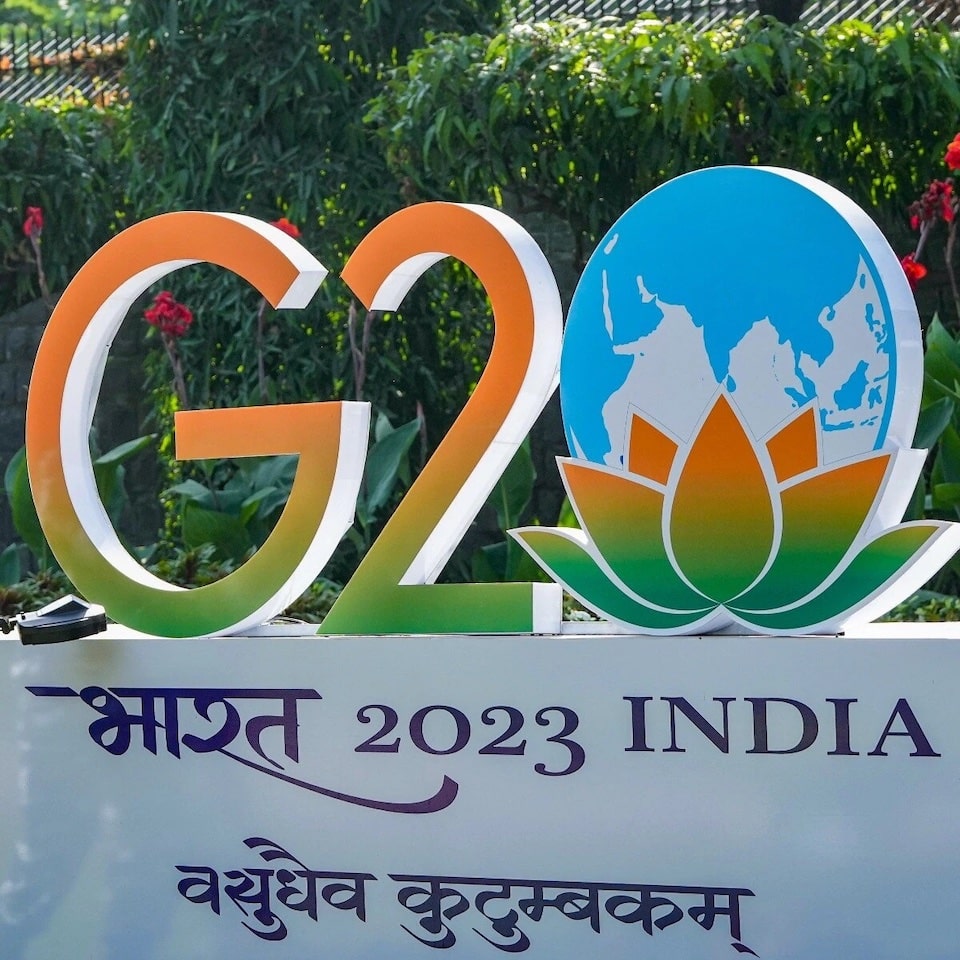
Upholding Vasudhaiva Kutumbakam has been a core principle guiding India’s ongoing G20 Presidency in 2023 under the theme of “Vasudhaiva Kutumbakam: One Earth, One Family, One Future.” Major outcomes have included the launch of the Human Life Value Transformation (HLVT) movement and concrete commitments on issues like debt restructuring, crypto regulations and mobilizing climate finance. At its essence, this philosophy represents India’s commitment to a multi-polar world order based on equality, mutual respect and international cooperation as it cements its role as a leading power and voice for the global south.
However, the ability to fully operationalize this philosophy on a global scale has faced challenges. For example,
Differences persisted among G20 members on issues like the Russia-Ukraine conflict.
Concerns around protectionism, unilateral policies impacted cooperation on trade and economics.
Global solidarity remained inadequate in areas like pandemic prevention and climate action.
So while India sincerely tried to promote Vasudhaiva Kutumbakam ideals as G20 President, the reality of geopolitical tensions and national interests posed obstacles in fully realizing the “One Family” vision across all G20 outcomes and processes.
Ultimately, upholding values like Vasudhaiva Kutumbakam is an ongoing endeavor requiring consistent diplomacy and global cooperation over the long-term. India’s G20 Presidency helped renew focus on this unifying philosophy, even if practical implementation remains an uphill battle.
Global Coordination on Knowledge and Technology
India embarked on several initiatives aimed at bolstering international cooperation in the realms of science, technology, and innovation. In 2019, the Global Innovation Partnership (GIP) was introduced, fostering collaborative innovation endeavors between Indian and foreign universities and research institutions. This initiative aimed to harness the collective expertise and resources of diverse stakeholders to address global challenges and drive technological advancements. By facilitating joint projects and knowledge exchange, the GIP sought to accelerate progress in key areas such as healthcare, renewable energy, and information technology.
The following year, in 2020, India assumed the role of a founding member in the Global Partnership on Artificial Intelligence (GPAI), aimed at formulating responsible AI standards. With the rapid proliferation of AI technologies across various sectors, India recognized the importance of shaping ethical frameworks and guidelines to ensure their safe and beneficial deployment. As a member of GPAI, India collaborated with other nations to develop principles that promote transparency, accountability, and inclusivity in AI development and deployment. Through this partnership, India aimed to contribute to the responsible adoption of AI technologies on a global scale, fostering trust and confidence in their use.
Additionally, in 2021, the Vaccine Action Program (VAP) was initiated, serving as a hub for technology transfer to facilitate global vaccine production. Recognizing the critical role of vaccines in combating infectious diseases and promoting public health, India launched this program to share its expertise in vaccine development and manufacturing with the international community. By establishing technology transfer hubs and fostering collaboration with pharmaceutical companies and research institutions worldwide, India aimed to expand access to affordable and high-quality vaccines, particularly in low- and middle-income countries.
Various agreements were also inked with partner nations such as the UK, Israel, and Brazil to establish joint centers and funds, fostering research collaboration. These partnerships aimed to leverage complementary strengths and expertise to address shared challenges and pursue common research objectives. By pooling resources and expertise, India and its partners aimed to accelerate scientific discovery, innovation, and technological development in key priority areas.
Despite these endeavors, the realized progress and tangible outcomes appeared modest compared to the initial ambitions. The pandemic-induced years witnessed reduced mobility for students and researchers, constraining academic exchanges. Funding challenges posed hurdles affecting the scale and scope of initiatives like GIP and VAP. Notably, advancements on major connectivity and data-sharing platforms, crucial for seamless knowledge dissemination, were lacking. India’s engagements in global technology domains remained predominantly bilateral rather than driving novel plurilateral frameworks.
While these steps were well-intentioned, the Indian government achieved only partial success in catalyzing an era of heightened global coordination in knowledge and technology arenas during this period. The disruptions caused by COVID-19 and resource constraints likely curtailed the ability to fully realize the promises made in 2019. Nevertheless, the initiatives launched during these years could serve as foundational elements for more robust international partnerships in science and innovation in the years ahead. Renewed dedication and focus would be imperative to actualize India’s objectives in this domain going forward.
Continuous Dialogue with Indians Living Abroad
The Indian diaspora, estimated at over 30 million people across the world, has been an important focus area for successive Indian governments. In the latest term of Government of India under the leadership of Prime Minister Narendra Modi, took following initiatives for the benefit of Indians living abroad:
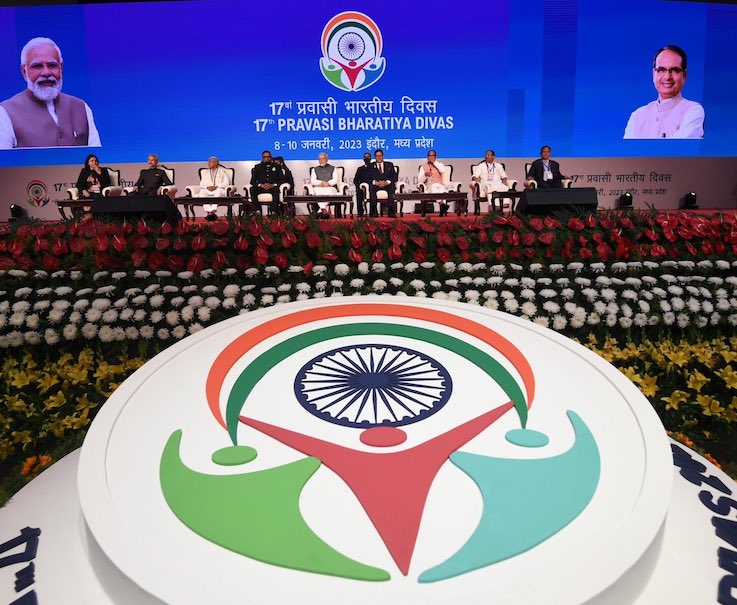
Regular annual Pravasi Bharatiya Divas conventions served as significant diaspora outreach programs, even transitioning to virtual formats during the pandemic years to ensure continuity. Additionally, regional Pravasi Bharatiya Divas events were organized in countries such as Singapore, the UK, and Canada, facilitating connections with diaspora communities abroad. The expansion of the “Study in India” program aimed to attract more diaspora students to Indian universities, enhancing educational opportunities and cultural exchange.
Reforms were also implemented in schemes like the Overseas Citizen of India (OCI) and Global Pravasi Rishta to address longstanding grievances within the diaspora community. The operationalization of the MADAD online grievance redressal portal provided a platform for consular assistance and feedback from diaspora members.
However, certain challenges persisted. COVID-19 travel restrictions hindered physical outreach efforts for a period, limiting direct engagement with diaspora populations. Concerns regarding the welfare of Indian migrant workers in certain regions remained prevalent, highlighting ongoing issues that required attention.
Furthermore, some diaspora groups expressed concerns about domestic policies impacting their cultural and religious identities, necessitating dialogue and understanding between the government and diaspora representatives. Capacity building within the government’s diaspora engagement infrastructure was identified as an area needing improvement. While the Indian government demonstrated commitment through frequent high-level interactions and policy measures, maintaining seamless two-way communication with diaspora communities worldwide remained a work in progress until August 2023. Continued dedicated efforts would be necessary to fully realize the potential of diaspora engagement and address the diverse needs and concerns of the global Indian community.
Combating Terrorism through Global Forum
India demonstrated unwavering commitment to rallying global cooperation against the menace of terrorism across multilateral platforms.
At the United Nations, India championed the early finalization of a Comprehensive Convention on International Terrorism. Its Permanent Representative Ruchira Kamboj affirmed, “We remain committed to bringing those responsible for perpetrating these inhuman acts to justice.”
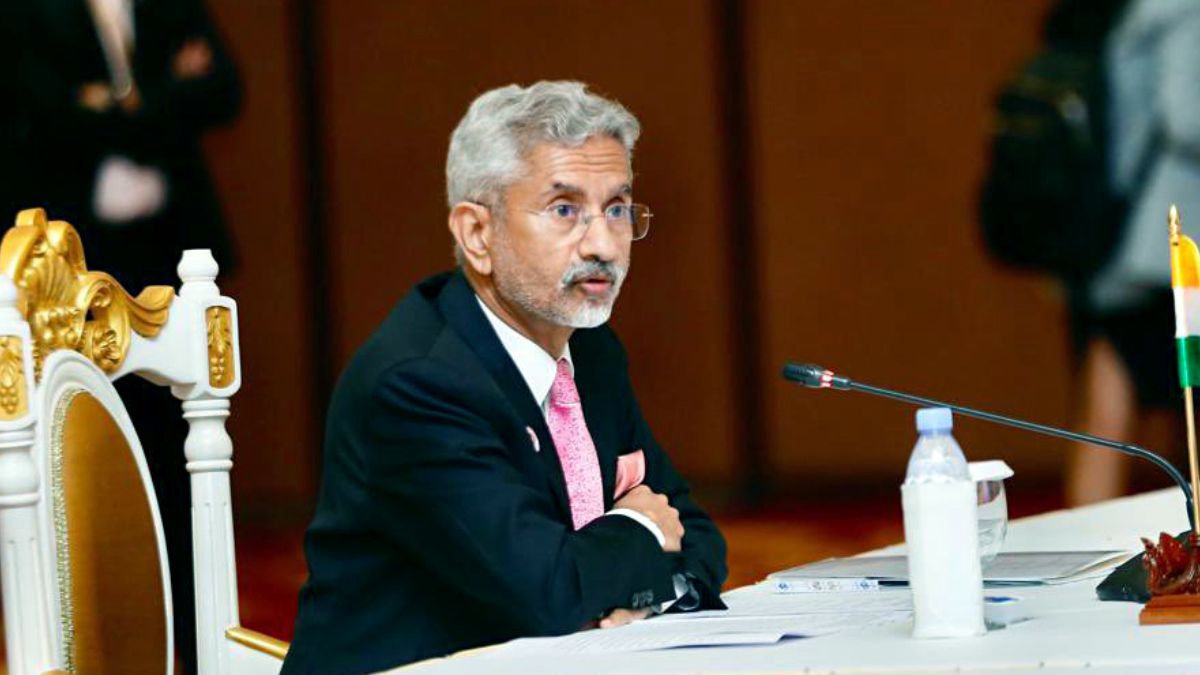
External Affairs Minister S. Jaishankar, without naming Pakistan or China, criticized countries that use terror as a “tool of state-craft” or fail to “rise above political divides” to address the threat posed by terrorism. He emphasized that perpetrators, facilitators, and financiers of terror attacks “continue to walk free, enjoy state support and hospitality,” citing the “most egregious example” of the 2008 Mumbai terror attack. Jaishankar called for concerted action against terrorists and their sponsors, including dismantling safe havens and political support structures.
Recognizing terrorism as a “grave threat to humanity itself,” India leveraged regional forums like BRICS, SAARC and SCO to build counterterrorism capacities and intelligence-sharing mechanisms. Strong counterterrorism partnerships were forged with nations like the U.S., Russia and European countries.
While challenges persisted, India’s voice reverberated globally on the need for a unified zero-tolerance approach.

In 2023, India marked a significant milestone in its relentless pursuit of safety, security, inclusivity, and self-reliance under the visionary leadership of Prime Minister Shri Narendra Modi. The Ministry of Home Affairs (MHA) witnessed a paradigm shift in the criminal justice system with the passage of landmark legislations including the Bharatiya Nagarik Suraksha Sanhita, Bharatiya Nyaya Sanhita, and Bharatiya Sakshya Adhiniyam, ushering in a new era of legal frameworks aligned with contemporary needs and correctional ideologies. Upholding a zero-tolerance policy against terrorism and drug trafficking, India, under the decisive guidance of Home Minister Shri Amit Shah, declared four organizations as ‘Terrorist Organizations,’ designated seven individuals as ‘Terrorists,’ and identified three organizations as ‘Unlawful Associations.’ This proactive stance reinforced India’s commitment to combating the global scourge of terrorism.
Furthermore, significant strides were made towards promoting peace, progress, and development in conflict-prone regions such as Jammu & Kashmir, the North East, and Left Wing Extremism (LWE) areas. Historic agreements were signed to settle long-standing disputes and foster reconciliation, including the resolution of the border dispute between Assam and Arunachal Pradesh and the signing of a Peace Agreement with the United National Liberation Front (UNLF) in Manipur. These initiatives were pivotal in realizing Prime Minister Shri Narendra Modi’s vision of a peaceful, prosperous, and insurgency-free Northeast.
Moreover, efforts were intensified to bolster national security and strengthen border infrastructure, with the establishment of security camps in Maoist strongholds and the initiation of the Vibrant Villages Programme aimed at comprehensive development of border villages. In alignment with contemporary needs, the MHA embarked on a comprehensive review and revision of outdated colonial-era laws, underscoring its commitment to modernizing the legal framework.
As India navigated the challenges of the digital age, initiatives were launched to curb cybercrimes and enhance disaster management capabilities. The introduction of millets (Shree Anna) in the meals of Central Armed Police Forces (CAPFs) and National Disaster Response Force (NDRF) personnel underscored India’s commitment to promoting healthy and sustainable dietary practices.
Deeper Multilateral Co-operation
India, a nation with a rich history and diverse cultural heritage, has consistently played a pivotal role in global affairs. As part of its foreign policy, India recognizes the significance of deeper multilateral co-operation. This strategic approach aims to foster collaboration, enhance regional stability, and address global challenges.

Prime Minister Narendra Modi’s foreign policy doctrine emphasizes strategic autonomy and active global engagement. In his words, “A strong, self-reliant, and self-confident India will pursue a foreign policy of enlightened self-interest.” This doctrine underscores India’s commitment to multilateralism while safeguarding its national interests.
India actively engages in several key multilateral partnerships, collaborating with nations and organizations to address global challenges. Let’s explore some of these significant partnerships:
BRICS (Brazil, Russia, India, China, South Africa)

BRICS, originally comprising Brazil, Russia, India, China, and South Africa, has now expanded its membership from five to eleven countries. This move reflects a concerted effort to enhance its global standing. Egypt, Iran, Saudi Arabia, UAE, Ethiopia, and Argentina have joined the BRICS fold, amplifying the group’s representation across the Middle East, Africa, and South America. Full membership for these new entrants will take effect on January 1, 2024. While the original BRIC members shared large economies and high growth rates, the expanded BRICS-11 is a more diverse group, with some countries facing crises and others thriving. This expansion could signal a broader agenda beyond economics.
G20 (Group of Twenty)

As a member of the G20, India participates in discussions on global economic governance, financial stability, and development. The G20 provides a platform for India to engage with major economies and address pressing issues.
In December 2022, Prime Minister Narendra Modi assumed the G20 presidency, receiving the gavel from his Indonesian counterpart in Bali. India’s presidency provides an opportunity to shape the global agenda and promote its priorities.
In 2023, India hosted the G20 summit, a pivotal gathering comprising major economies from around the globe. The grand event unfolded in September in New Delhi, representing a significant milestone in India’s diplomatic efforts. With participation from leaders of all the prominent nations, it emerged as one of the most consequential international congregations in India’s history. The overarching theme, “One Earth, One Family, One Future,” underscored India’s commitment to fostering unity and cooperation on a global scale. In pursuit of inclusivity, India meticulously orchestrated over 200 meetings held across 60 cities throughout the country, ensuring diverse voices were heard and considered in the deliberations.
At the core of the summit lay the New Delhi G20 Leaders’ Declaration, a collective agreement endorsed by all member states, delineating a comprehensive strategy to address pressing global challenges. India’s emphasis on equitable and inclusive solutions resonated strongly within the declaration, reflecting the nation’s steadfast commitment to promoting fairness and solidarity among nations. Prime Minister Modi’s impassioned plea for peaceful dialogue over conflict echoed throughout the proceedings, reinforcing the importance of diplomacy and cooperation in resolving international disputes.
The summit witnessed an unprecedented influx of attendees, with over 100,000 participants converging from across the globe. This inclusive gathering comprised heads of state, ministers, and delegates from a multitude of nations, demonstrating the widespread recognition and support for India’s leadership in the global arena. Leveraging the collective efforts of various states and territories, India showcased its cultural richness and hospitality, offering a glimpse into its diverse heritage through culinary delights and vibrant performances.
ASEAN (Association of Southeast Asian Nations)
India’s “Act East Policy” is a strategic initiative that goes beyond geographical proximity. It focuses on strengthening ties with ASEAN countries, recognizing their economic dynamism and strategic significance. Through this policy, India collaborates with ASEAN on various fronts:
Trade and Economic Integration: The ASEAN-India Free Trade Agreement (AIFTA) aims to boost economic ties. It facilitates the flow of goods, services, and investments between India and ASEAN nations. By reducing tariffs and non-tariff barriers, AIFTA enhances economic integration.
Security Cooperation: India and ASEAN engage in joint efforts to counter transnational threats such as terrorism, piracy, and cybercrime. Regular dialogues and joint military exercises strengthen security cooperation.
Connectivity: Infrastructure development, including road networks, ports, and air connectivity, is a priority. Initiatives like the India-Myanmar-Thailand Trilateral Highway and the Kaladan Multi-Modal Transit Transport Project enhance connectivity within the region.
Cultural Exchanges: India promotes cultural diplomacy through festivals, academic exchanges, and people-to-people interactions. These exchanges foster mutual understanding and strengthen historical ties.
SCO (Shanghai Cooperation Organization)
India’s full membership in the SCO provides a platform for engagement with Central Asian countries and China. Key aspects include:
Regional Security: The SCO focuses on combating terrorism, separatism, and extremism. India actively participates in joint counterterrorism exercises and shares intelligence with member states.
Economic Cooperation: The SCO facilitates economic collaboration through forums like the SCO Business Council. India seeks to enhance trade, investment, and connectivity within the region.
Cultural and Educational Ties: India promotes cultural exchanges, academic cooperation, and people-to-people contacts. The SCO University network encourages educational linkages.
SAARC (South Asian Association for Regional Cooperation)
SAARC aims to promote regional cooperation among South Asian countries. India’s engagement includes:
Poverty Alleviation: India collaborates with other SAARC members to address poverty, hunger, and social inequality. Initiatives like the South Asian Food Bank aim to ensure food security.
Healthcare and Education: SAARC Health Ministers’ meetings focus on health challenges such as communicable diseases and maternal health. Educational exchanges enhance knowledge sharing.
Disaster Management: India actively participates in SAARC’s disaster management mechanisms. Cooperation during natural disasters strengthens regional resilience.
BIMSTEC (Bay of Bengal Initiative for Multi-Sectoral Technical and Economic Cooperation)
BIMSTEC connects countries around the Bay of Bengal. India’s engagement includes:
Trade and Investment: BIMSTEC aims to boost intra-regional trade. India collaborates with member states on trade facilitation, investment promotion, and economic integration.
Energy Cooperation: India explores energy linkages, including hydroelectric power projects and cross-border electricity trade. Energy security is a shared concern.
Tourism and Cultural Ties: BIMSTEC promotes tourism, cultural exchanges, and people-to-people connectivity. India’s northeastern states benefit from improved connectivity with neighboring countries.
International Solar Alliance (ISA)
